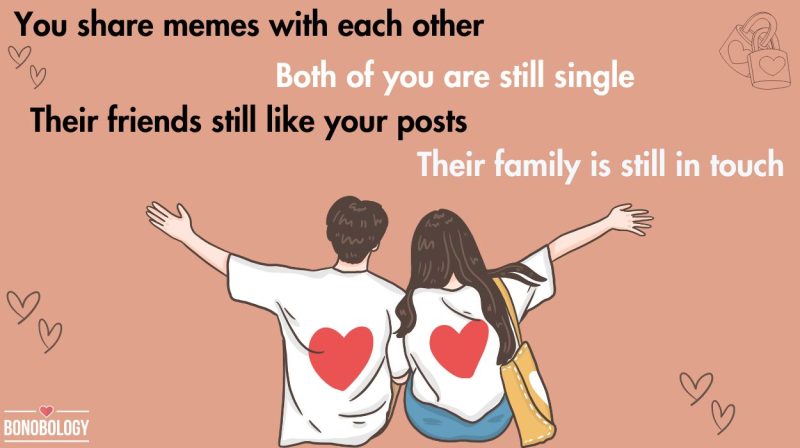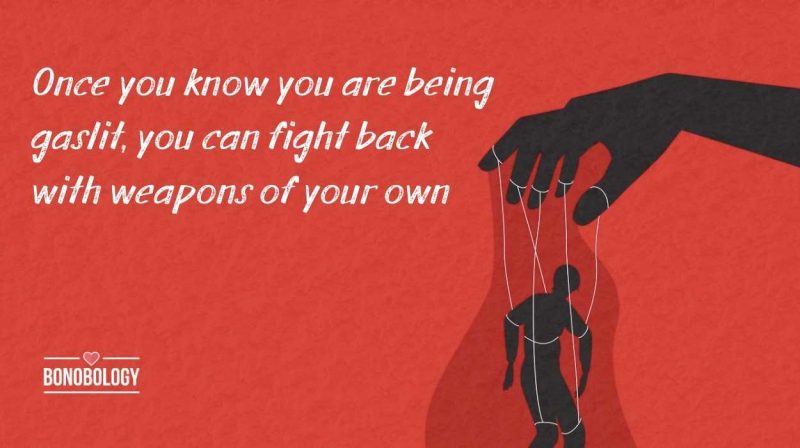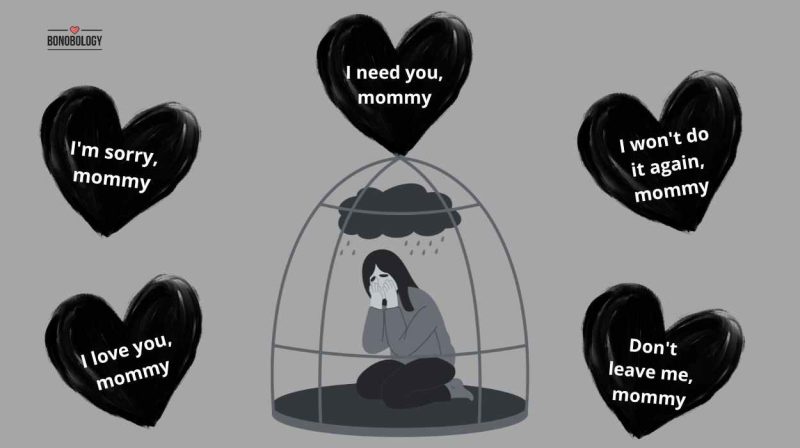Time and again, you personal grief and depression will come to affect your relationships with other people. What’s affecting you mentally and emotionally will almost always color your interactions with others. So if you’re experiencing some kind of a loss in the family or are undergoing severe emotional trauma, you will notice how that can change your demeanor towards others and the fulfillment you find in other relationships.
Since your head would already be buzzing with dark thoughts and feelings, you may not be able to devote yourself fully to your friendships or romantic relationships. If your mental health struggles get bad enough, you may even become averse to to the idea of finding love because you simply lack the energy for it. But, with therapy and the right kind of approach, you can soon find yourself on the road to recovery. Read on to understand how grief affects relationships and what are some of the signs you should not take lightly.
Impact Of Grief On Relationships
Table of Contents
This is a story about me and her. I would like to believe that we’re individually both great people. We are both funny, smart, and empathetic people. We’ve been together for eight years now. But there’s a crucial piece missing from this seemingly perfect equation. We hardly have sex! And, while at first, I could deal with it, these sexless relationship effects are now getting to me.
It wasn’t always like this, though. When we had newly started dating, the sex was regular. We were passionate and adventurous in bed. Things went wrong one day and we eventually broke up. But after dating other people for the next couple of years, we gravitated towards each other again.
I guess after having tried and tested the rest of the crowd, we realized we were home to each other. Cut to a few months later and we couldn’t get enough of each other. Every time we met, we ended up naked, sweating, and exhausted. No, I am not trying to invoke steamy images in your head. It is just to illustrate that the sex wasn’t infrequent to begin with.
Related Reading: Scheduled intimacy can be just as fulfilling
We started getting serious
I had always wanted to be with her long-term and, though she had never been sure of the relationship or the future it held, on my insistence she moved in with me. We struggled financially and a fair amount of adjustment was needed but we were happy. Even at this stage, the sex was great in our live in relationship. Then her family moved to the city and she went to live with them because her mother was sick. Gradually, I became a part of her family. We never really discussed our relationship openly, but her mother was a smart lady.
She liked me and knew that I had the patience and the tenacity needed to handle her idealistic and fairly naive daughter. Once, in fact, her mother jokingly expressed her desire to see us married someday! Even at this stage, with all the sneaking around, sex was steady. And good. This phase lasted for over a year. And then came our big wedding day! But a few months after the wedding, the saddest thing happened.

But then came a wave of sadness
We didn’t expect that our life after the wedding would be off to such a start. My wife’s mother succumbed to her chronic illness. My girl was heartbroken at the news and understandably so. The rest of her family moved back to their hometown. She came back to our place after a month of mourning. We moved into a new house, hoping for a fresh start and a new perspective. The house she picked was beyond my means but, given the circumstances and her emotional state, I decided to take it anyway.
I just wanted her to be happy, even if it meant that I had to take three jobs. Days turned into weeks and weeks into months. Everyone in her family made an effort to move on, adjusting to the new life. Not that her mother could ever be forgotten, but there were things to do. Lives to live. I wanted her to be able to separate her own grief from our relationship so that she could still enjoy a life outside her sadness.
Helping a grieving spouse
My girl stayed stuck in the past. She became reticent and distant from me. Almost every time I moved in for a hug, she would withdraw, saying she was still grieving. I was doing my best to understand her and help a grieving spouse but I was failing.
That’s how it began. Strangely, however, she seemed happy when she was spending time with friends. She hosted parties and organized birthdays but asked me to stay away when her friends were around. I didn’t know how to react. It was some sort of an outburst of grief and marriage breakdown.
Gradually, her depression seemed to get worse. Forget sex, even general intimacy was reduced to near nonexistence. This was especially difficult for me because I am generally a hug-and-kiss kind of a chap. I understand if she has a loss of libido and doesn’t want to have sex while grieving but I did not even feel like her husband anymore. We came very close to separating several times. But I still hoped for improvement and persisted each day. Little did I realize that nothing of the sort was going to happen.

My spouse grieving loss of parent became too distant from me
One day, when I hugged her from behind as she stood in the kitchen, she withdrew from me at lightning speed. Instinctively, I let go and backed away. It’s hard to forget that painful incident. I was doing my best to help my depressed wife and figure out how to help a grieving spouse.
But there was no effort from her side. The marriage kept oscillating between hot and cold for over a year, like some old and repetitive soap opera, and, finally, all hell broke loose. After a discussion about the lack of sex – one which then turned into a full-blown argument – she said that she’d never been interested in sex to begin with. Through the years, she’d either feigned interest because I wanted it or did it because she thought that was the way things were done.
She didn’t like any sort of intimacy or want any from me. She said she felt sex was a chore and that’s all that I wanted from her. Then I reminded her of how I tried standing by her through everything, ceaselessly working to ensure that she was comfortable. I told her I didn’t understand why her depression only seemed to kick in when I was around.
If she wasn’t happy then why was she still with me? More accusations and counter-accusations followed and all my effort of how to help a grieving spouse just went in vain.
Related Reading: 13 Sure-Shot Signs He Pretends To Love You
An episode of grief and marriage breakdown
After that altercation, things changed monumentally between the two of us. I was tired of constantly trying my best and only getting hurtful words in return. Let me tell you, helping a grieving spouse feels like knocking on a door when nobody is on the other side. It’s true. I’ve understood now how seriously grief and relationships are interconnected and how your grief truly can make your relationship murky.
Today, we inhabit different rooms, hardly speak to each other and make only obligatory appearances together. The love, the passion, the adventure is all gone. She claims it was never there, to begin with. I think we lost it in the rush of life. But the fact remains that we’re lugging around the corpse of a relationship just because neither dares to accept that the relationship is dead.
As far as her depression is concerned, I’m not sure if she’s doing well or not. I just know that helping a grieving spouse is not my cup of tea anymore. In the end, all I’ve done is take hits and hear hurtful things that I never deserved in the first place.

On Grief And Relationships – From The Expert
No matter how much we want to deny it, grief and relationships are hard to separate. Here are some inputs from Expert Prachi Vaish on handling grief together as a couple :
“We usually think that in a few months or years we can move on from the deaths of those we love, but sometimes we get stuck. Moving houses or making a ‘fresh start’ doesn’t work. Also, sometimes, losing someone as important as a mother induces a lot of survivor guilt in the person left behind.
In times of grief, sometimes we withdraw from the person closest to us. Being with them reminds us of the time that was – before the death and loss occurred – and induces fresh pangs of guilt and longing, which are opposing emotions and very painful. We seek solace in friends and other not-so-intimate people which can make one an emotionally distant spouse.
This is why we become averse to the ideas of sex while grieving or prefer to be alone. Instead of asking, “Why are you doing this?” one can ask, “What do you need?” “Can I do something for you today?” to a spouse grieving loss of parent or something else. Complicated grief can last sometimes for 5-10 years even! The best option would be to find a qualified grief therapist or counselor or an online support group and get structured and professional help. It’s merely a knot that needs to be untangled and the relationship CAN heal – trust me! With the right help, you can manage grief and relationships very well.”
Prachi S Vaish is a licensed Clinical Psychologist and marital therapist, specializing in couples issues and recovery from trauma. She holds an M Phil in Clinical Psychology, heads India’s first online psychological services portal, and regularly contributes articles as an expert consultant to many publications.
FAQs
When one experiences intense grief or goes through depression because of the loss of a parent, it can make them lose their libido and interest in their marriage. Moving on from death can take years and it might just make someone withdraw from their other relationships.
Grieving can make a person feel numb and twisted within. This can make them lose interest in all that they used to enjoy before, which includes people and relationships too.
It can be hard to understand the connection between grief and marriage breakdown and how grief affects relationships. One should opt for counseling in such cases. Professionals can help couples navigate and cope with grief.
Your contribution does not constitute a charitable donation. It will allow Bonobology to continue bringing you new and up-to-date information in our pursuit of helping anyone in the world to learn how to do anything.























Featured
15 Signs You’ll Get Back Together With Your Ex
How To Get Over Trust Issues — A Therapist Shares 9 Tips
Learn How To Forgive Yourself For Hurting Someone You Love
How To Find Peace After Being Cheated On — 9 Tips From A Therapist
How To Forgive A Cheating Husband: 15 Helpful Tips
35 Disturbing Signs Of Gaslighting In A Relationship
What Is Narcissistic Ghosting And How To Respond To It
‘My Husband Starts Fights And Then Blames Me’: Ways To Cope
How To Rebuild Your Life After The Death Of A Spouse: 11 Expert-Backed Tips
My Husband Died And I Want Him Back: Coping With Grief
“Am I Unlovable” – 9 Reasons You Feel This Way
11 Signs Your Girlfriend Was Sexually Abused In The Past And How To Help Her
Coping With Breakups: The Must-Have Breakup Apps For Your Phone
15 Signs You Are Wasting Your Time Trying To Get Your Ex Back
Why Are You Obsessed With Someone You Barely Know — 10 Possible Reasons
33 Phrases To Shut Down Gaslighting And Silence Gaslighters
The Emotion Wheel: What It Is And How To Use It To Build Better Relationships
The Role Of Supportive Relationships In Addiction Recovery
7 Signs You Have A Verbally Abusive Wife And 6 Things You Can Do About It
Mommy Issues In Women – Meaning, Psychology, And Signs